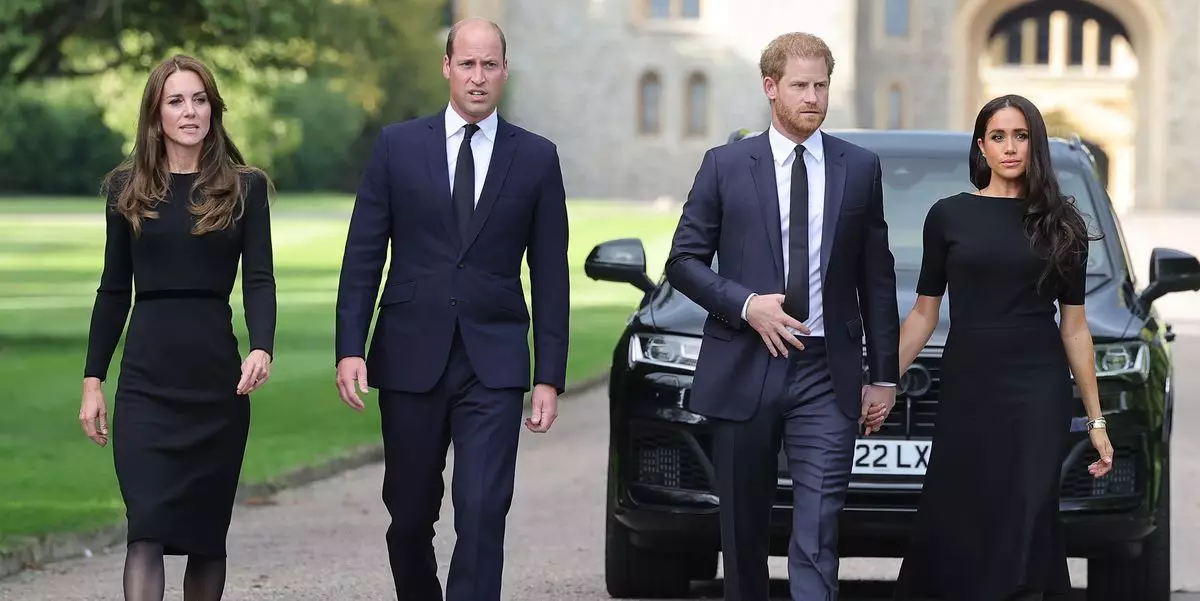Prince Harry’s journey alongside Meghan Markle represents not just a personal saga but a broader commentary on the delicate interplay between public life and private struggles. Since their relocation to California in 2020, Harry has been vocal about the deepening chasm with his family, particularly with King Charles and Prince William. This evolving narrative raises critical questions about familial bonds, trust, and the ever-present role of the media in amplifying personal conflicts.
The psychological toll of living under constant scrutiny is immense. For Harry and Meghan, the decision to step back from royal duties came with the burden of both freedom and isolation. The assertion from a recent insider report that there exists a “lack of trust” among family members serves as a poignant reminder of the intricate web of personal grievances and public perceptions that define their reality. While Meghan is reportedly focused on looking forward and driving to create new opportunities, Harry still grapples with his royal past—a dichotomy that fuels both tension and mutual dependency.
The Reality of Security Concerns
One of the more substantial complications surrounding Harry and Meghan’s visits to the U.K. are the implications of security. Harry’s request for automatic police protection highlights not only his concerns for his family’s safety but also a stark reminder of his transformed status. Once a beloved member of the royal family, he now finds himself navigating a world where privilege can be elusive. The rejection of their appeal for police protection earlier this year is indicative of the broader struggles faced by the Sussexes as they attempt to reclaim a semblance of normalcy, yet are repeatedly reminded of the barriers imposed by their royal ties.
Charles’ ongoing health issues add another layer of complexity to the equation. As he undergoes cancer treatment, the desires for reconciliation clash with the realities of family dynamics shaped by years of estrangement. Harry’s acknowledgment of his father’s struggles illustrates a compassionate side often lost in the noise of public opinion. It shines a light on the importance of communication and vulnerability as pivotal factors for healing familial divisions.
Parsing Personal Narratives
The Sussexes’ unique approach to sharing their story—through a blockbuster docuseries and Harry’s memoir—has sparked intense debate over the morality of divulging personal anecdotes. Harry’s revelations about the editing process of his memoir indicate an internal struggle between the desire to express himself authentically and the fear of further alienating family members. This notion of self-censorship for the sake of preserving bonds is both commendable and troubling, as it reflects the subjective nature of memory and experience within family trees.
Moreover, Harry’s admission that he removed sensitive content to avoid creating further fissures when it came to his familial relations points to a relentless balancing act. It raises poignant questions: how much disclosure is too much? At what point does the pursuit of personal truth overrun the ideal of familial loyalty?
In reflecting upon these dynamics, it becomes evident that healing the rift within the royal family cannot rely solely on communication or public gestures of goodwill. It requires a profound understanding of the impact of their respective choices—choices that will reverberate through both their lives and the public consciousness for years to come. The road ahead for the Sussexes remains complex, littered with both opportunities for reconciliation and obstacles that could hinder the healing process.


Leave a Reply